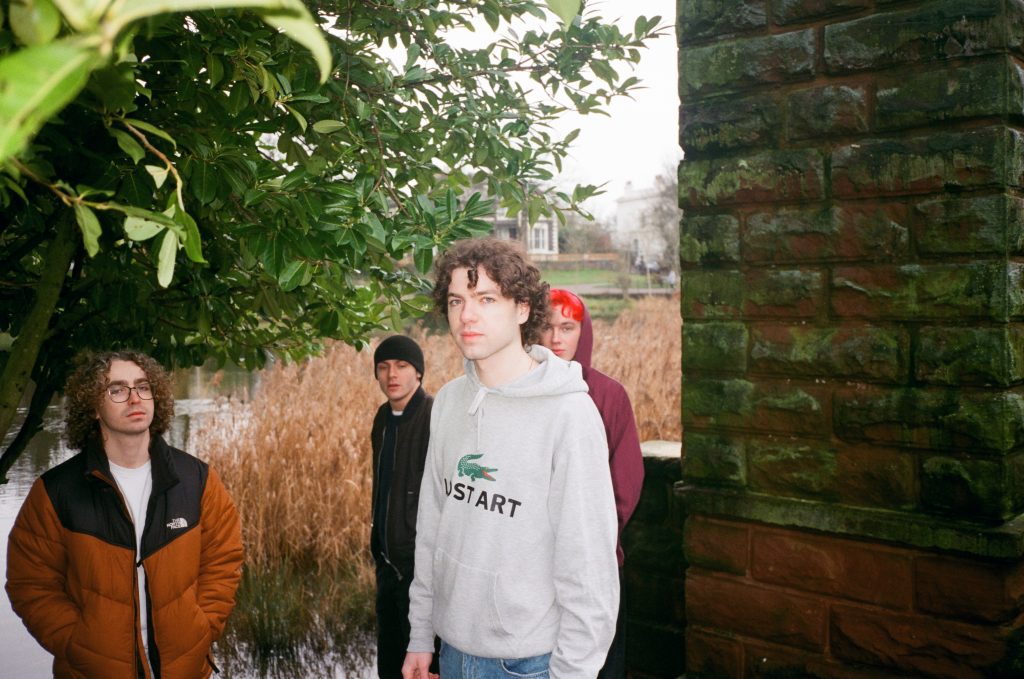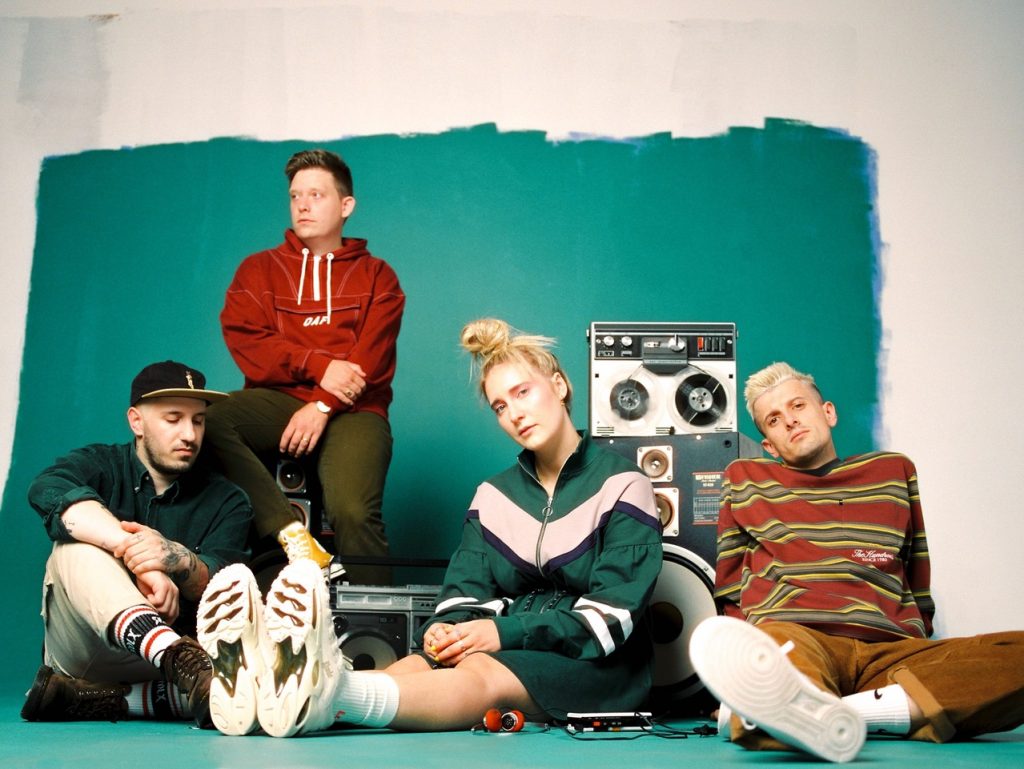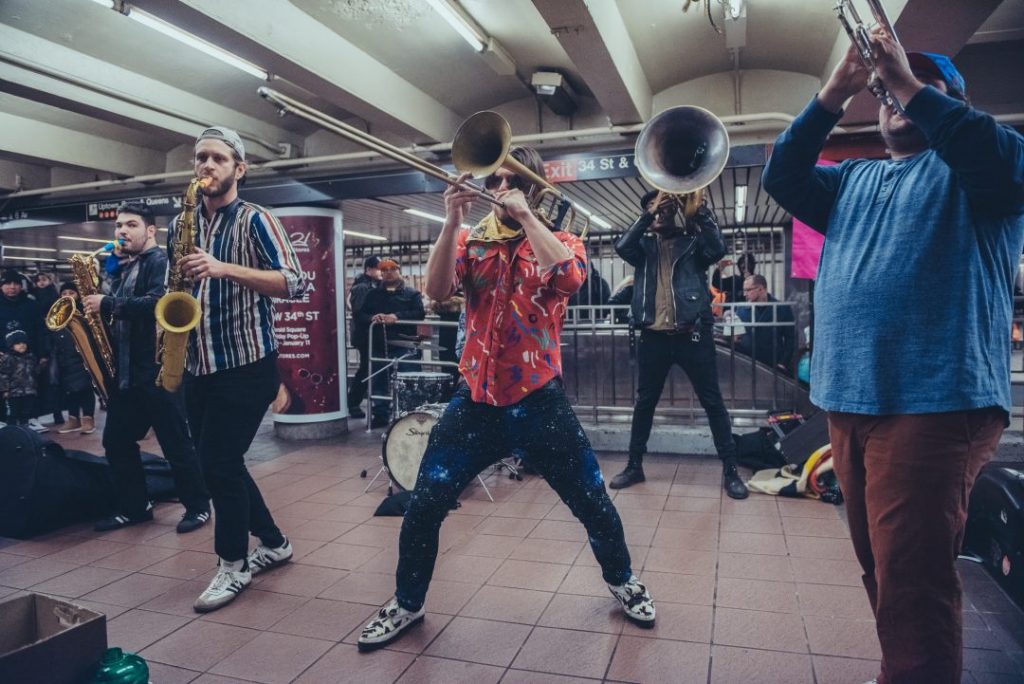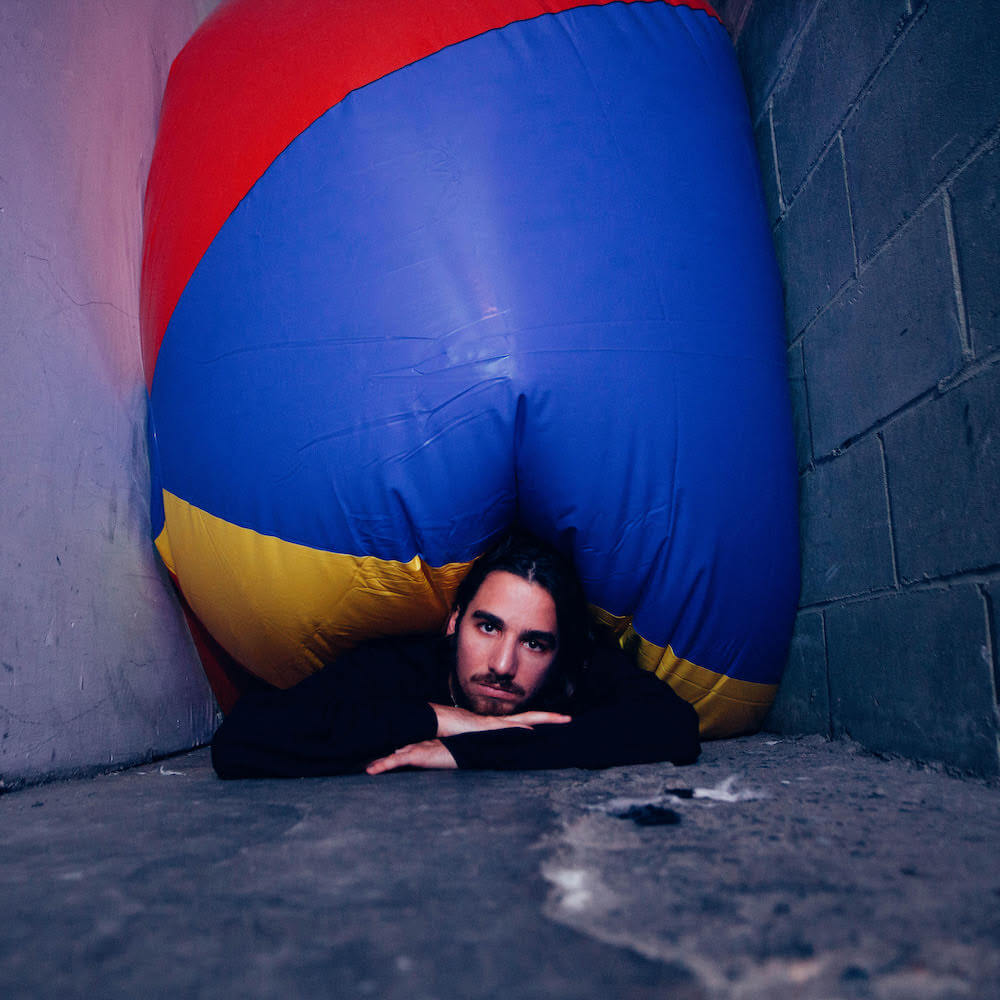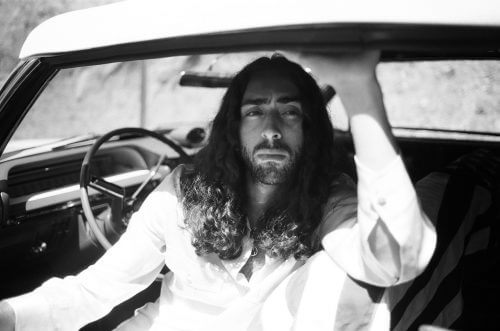Folk Duo Rosu Lup Present An Antihero’s Journey
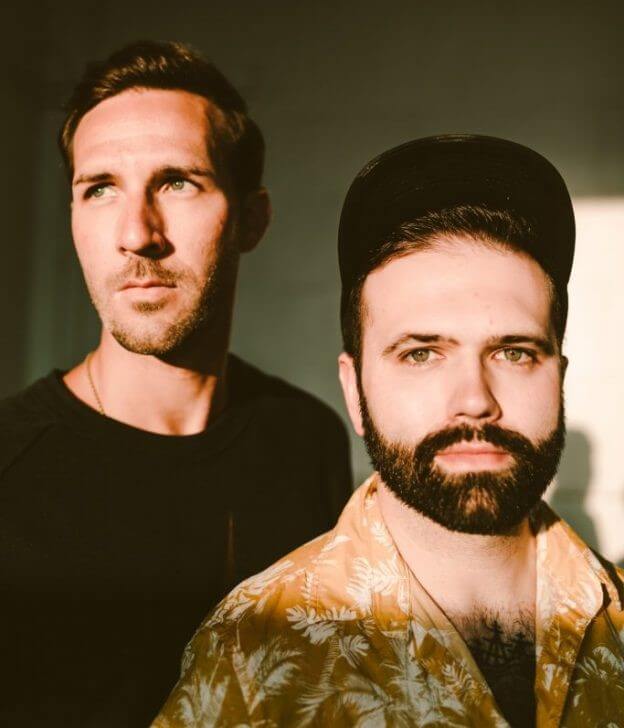
It’s been said we’re all the heroes of our own stories. That is even truer of the songwriters and poets who sing their stories aloud, and among the many monomyths and heroes’ journeys is Rosu Lup’s The Ranger, released in November 2019. The Philadelphia indie folk duo of Jonathan Stewart and Josh Marsh take us for a different kind of ride in their sophomore album. At times an almost cinematic score, and at others the simplest of folk tunes, The Ranger is a hike through the highest mountains and the lowest valleys. It is a place to mourn our mistakes, but revel in them too.
In a conversation with FRONTRUNNER, Jonathan Stewart remarks on his antihero’s journey from Philadelphia through the Appalachian Trail–and, like the title of the opening track of the group’s recent album, the process of “[Coming] Back Home” again.

Photo credit: Ashley Gellman
You often talk about the ways in which nature influences your work. That seems very clear on this album (especially in songs like “The Wildflower” and “White Birch”). What inspires you most about the great outdoors?
One of our favorite things to do is hike, whether it be on the Appalachian Trail somewhere in the Northeast, or in parks closer to home. Getting out into nature is life-giving. It provides the opportunity to connect with something much bigger than ourselves, our schedules, and our worries. Nature offers unparalleled beauty that we are meant to connect with on a deeper level than we allow ourselves in the day-to-day.
Where are the best places in Philly to experience nature?
One of the best places in the Philly area to experience nature is definitely Wissahickon Park. The creek and falls are fantastic. There are some great trails to walk or mountain bike on. It’s a wonderful spot to escape to.
There also exists a sort of tension on The Ranger between the natural and the synthetic as you oscillate between orchestral and electronic sounds, pastoral and manmade imagery. Where does that relationship come from? Does it have anything to do with your roots in Philly?
I love this question because it one-hundred percent hits the nail on the head with how we feel as songwriters. Philly and the Greater Philadelphia area have this sort of energy, and life moves at a very fast pace. I think that’s why punk music does so well in Philly and that the DIY scene is really thriving — which is great. But yeah, because of the proximity to so much manmade architecture, buildings, bridges, etc., it makes it a bit harder to connect with the natural world. Living here, that energy and attitude rubs off on you. However, there is always this deep longing for us to be out among the evergreens and mountains. So I think that oscillation happens within our songwriting and production as an outward reflection of this inward pulling.
Folk music is not known for orchestral or electronic sounds. How did that come about for you?
Yeah, I think artists like Sufjan Stevens and Bon Iver have been influential when it comes to the incorporation of these orchestral and electronic elements. Going a bit further back, too, the Beach Boys’ use of orchestral instrumentation in their work has really inspired a lot of the sounds and harmonies as well.

James McAlister, who has played with all kinds of artists (including The Album Leaf) and David Bazan plays on The Ranger. His influence feels pretty prevalent throughout the album. How did that collaboration begin and how did it influence the writing process?
I love James. I could stop there and that would be saying enough. Definitely, James’ involvement on the recordings certainly influenced a lot of the direction. He has been my favorite drummer for years, and I had the opportunity to connect with him via Jonathan Low, who we worked with several years ago at Miner Street [Recordings in Philly]. Jon used to engineer there and had worked on some of our music. He also worked with James on the Planetarium record, so that was the connection. I reached out to James and shared some demos with him, and things took off from there. A lot of the arrangements and song structures were set in place before we went out to LA to work on tracking drums, synths, keys, and other fun sounds. James’ genuine interest in the project and bringing his experience to the writing influenced a lot of the synthetic sounds. It was a great experience.
There are a lot of moments in your songs that feel reminiscent of James’ work with Sufjan Stevens and The National. But, at the same time, The Ranger feels perhaps more “Rosu Lup” than any of your previous works. Why is that? How do you find that balance?
We’re really glad that this record feels more us than our other work. I think that’s telling; we went through a season trying to find our identity. We had experimented with some rock and roll vibes on Is Anything Real, which had a good bit to do with the musicians and producers we had worked with during that season. Josh and I really dug our feet in the ground with this record, wanting it to almost feel like a rebirth for our band, wanting it to reflect who we are more than other releases. Working with James was a big part of that too, we wanted to be able to guide the writing process in a direction that felt natural, and it was easy to do that with him. We were also intentional about taking some time out of Philly while writing and recording.

Why was it important for you to acknowledge these moments of heroism lost?
We all want to be Batman, Wonder Woman, Luke Skywalker, or whichever hero you’re drawn to. They embody a lot of the qualities and characteristics we aspire to ourselves. But the reality is that we all have a good amount of light and darkness inside of us all. Sometimes we are the bad guy, sometimes we don’t do the things that we know we should. I think there is a certain amount of grace received from acknowledging our faults, from humbling ourselves and just embracing the reality that sometimes we can suck as a person. Great folk stories, in my opinion, are the ones that come from a real place, for better or worse. The season of life that this record was written in was a really hard one, full of victories and defeats. So we wanted to own those moments and offer an unfiltered, no makeup version of life through these songs.
There’s a certain irony here, because in proclaiming your lack of heroism and bravery, you’re doing something quite brave. I’m reminded of a moment in “What You Need” where Josh sings, “If I were a singer / I’d write the perfect rhyme…” But you are a singer! How would you defend this contradiction, or is that the point?
Ha, caught red-handed. Yeah, I think it’s somewhat ironic for sure, and there is some showing your hand taking place. The motive wasn’t false humility in proclaiming a lack of heroism, it was actually wanting to be honest — which, there is a certain amount of bravery required to be honest at times. There exists some irony in the song lyrics as well, but it plays the role intended.
If the complaint of acoustic breakup albums is that they are often whiny and self-indulgent, The Ranger makes a great effort to be something else. There is so much concern for others woven into these songs. Was that intentional?
Hopefully, it’s authentic. I think we desire to place a high value on others. You never want to hurt or disappoint those closest to you. So the effort is definitely there. Hopefully, we did a decent job not creating a late 90’s acoustic emo record.
We talk a lot about albums in terms of “cohesiveness,” and this album certainly measures up in that regard. How important is that to you? Is it even something you think about?
Yeah, that’s one of the starting points for us at the drawing board. We often consider themes taking place in life and how we can weave them into the storytelling. Deciding what instrumentation to use helps to accomplish that, whether it’s orchestral, synthetic, or both. We wanted the record to be cohesive; I’m happy it feels that way.
The title track “The Ranger” is entirely instrumental. This seems to drive home the album’s claims towards orchestral, instrument-based arrangement. On a thematic level, it leaves one question very open-ended: who is “The Ranger”? Is he “the hero” we keep hearing about?
This isn’t a concept album. However, there are certain themes woven throughout. The title is based loosely on a Tolkien character. Which goes back to one of the previous questions about wanting to paint ourselves as the hero. During the year and a half working on this record, there was a lot of significant change in our lives. Through it all we wanted to be true to ourselves, we wanted to do what was right by others, and those qualities reminded us of this character; during a season of wandering, we really identified with this image.
As mentioned earlier, the album often announces itself as an orchestral work. Yet there is a lot of electronic influence as well. Though we start with orchestral strings, we end on electronic synths— as if to echo the great “changes” this album is commemorating. Can you walk me through your arrangement process and how things like that are decided?
That’s really wonderful attention to detail. We wanted this record to be bookended, and a lot of the songs themselves are small stories within a greater work. The use of both orchestral and synthetic instrumentation provides color and depth that we enjoy and find necessary in the writing process. They help evoke feeling and meaning as well. Like you mentioned in the opening track, the song rests at the end, back home. I think in a lot of great stories that end where they began, the characters aren’t the same characters they were at the beginning.


